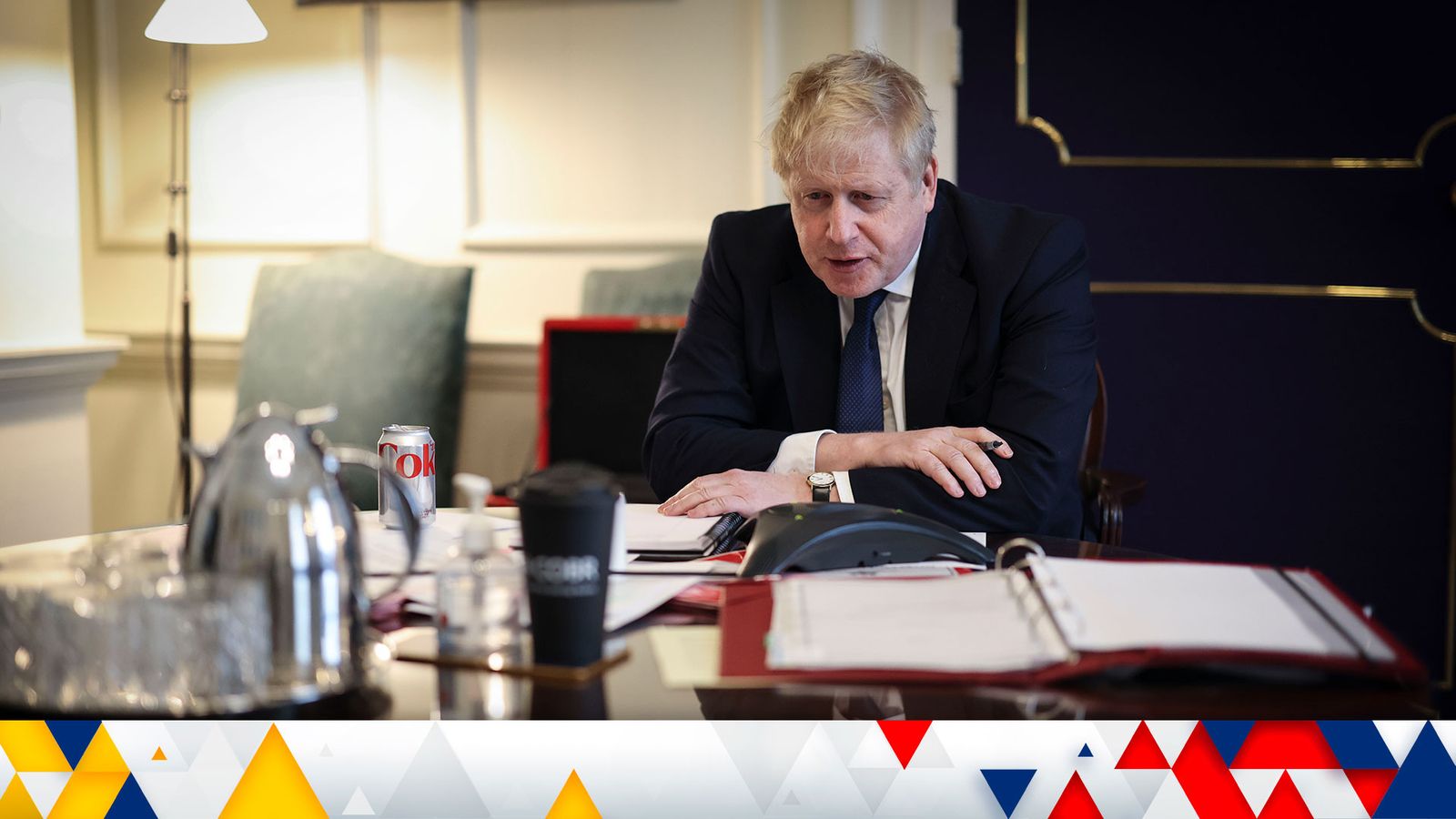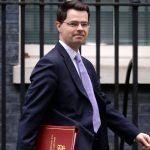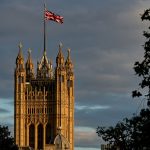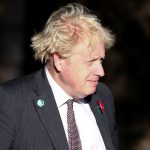The UK is “not leading the way” on individual sanctions in the wake of Russia’s invasion of Ukraine, a financial security expert has told Sky News.
Tom Keatinge, director of the Centre for Financial Crime and Security Studies at the Royal United Services Institute, told Trevor Phillips on Sunday that the EU and US “have moved faster on individuals” when it comes to Russia sanctions.
And he described energy sanctions as the “elephant in the room” as the West weighs up how to further punish Vladimir Putin’s decision to attack.
Live updates on Russia’s invasion of Ukraine
Please use Chrome browser for a more accessible video player
Key developments:
• Civilians cower on the ground with shells exploding overhead as they flee Russian assault
• Zelenskyy urges Russians to protest to ‘overcome evil’ as Putin demands surrender
• Fresh attempt to evacuate Mariupol fails as both sides blame each other
• Conflict could last ‘months, if not years’, deputy PM Raab warns
Oligarchs will have ‘contingency plans in place’
But Mr Keatinge added that “when it comes to freezing central bank assets and other parts of financial infrastructure, the UK is definitely taking a lead”.
Ukraine invasion: Chelsea manager Thomas Tuchel criticises own fans for chanting for Abramovich during minute’s applause
Ukraine invasion: Volodymyr Zelenskyy urges Russians to protest to ‘overcome evil’ as Vladimir Putin demands surrender
Ukraine invasion: What life is like as Russian forces close in on capital Kyiv
He said Russian oligarchs with assets in the UK will have “contingency plans in place” for sanctions and will “put up a tremendous fight” if they are targeted.
Mr Keatinge added that this country “has had a decades-long problem with dirty Russian money in London and elsewhere in the country”.
“We’ve ignored it for too long and we have seen the results of ignoring that,” Mr Keatinge said.
But he added that focusing too much on oligarchs was not helpful.
Please use Chrome browser for a more accessible video player
“What we need to be doing is crushing the Russian economy. Going after oligarchs helps because these are the people who, if anyone can whisper in Putin’s ear, it is them,” Mr Keatinge said.
“But in reality, I think making oligarchs the marquee, the measure by which you’re going to judge the progress you’re making, I think has been unhelpful for the government.”
Read more: What sanctions are different countries around the world imposing on Russia and will they work?
UK ‘should be leading’ on energy sanctions
Mr Keatinge said the “elephant in the room” when it comes to further sanctions against Russia is energy.
“If we don’t sanction energy, then we are not sanctioning the Russian economy to the extent that the foreign secretary and others have called for,” he told Phillips.
“The most massive consequences will be if we indeed now go after energy.”
Mr Keatinge suggested Western nations should reduce their imports of Russian oil over time, similar to what happened with Iran.
“Basically countries were told you don’t have to cut off your purchase of Iranian oil overnight, but you need to demonstrate month on month that you are reducing your imports,” he explained.
Please use Chrome browser for a more accessible video player
“So I think that needs to be a near-term and urgent mission, which the UK should be leading on that as well.”
Mr Keatinge also made the point that as well as introducing sanctions against Russia, the UK has to deal with its “dirty money problem”.
He said: “Sanctions do not deal with dirty money. Sanctions freezes the assets of those who are committing human rights abuses or destabilising and invading Ukraine.
“But we have to build our defences domestically to stop dirty money coming into this country.”
He said the upcoming Economic Crime Bill will be key in this.
Deputy PM says sanctions have to be done properly
Having already introduced a number of rounds against Russian banks and individuals in the wake of last month’s invasion of Ukraine, Boris Johnson’s government is weighing up further measures.
A particular focus looks set to be oligarchs close to Putin, with Sky News reporting on Thursday that ministers are considering emergency legislation to push through such sanctions.
Foreign Secretary Liz Truss has said the Foreign Office has a “hit list” of wealthy Russians whose property, businesses and cash could be frozen if sanctions are signed off.
But the government has been facing calls to act quicker, with critics arguing oligarchs are being given an opportunity to dispose of their assets before being hit with sanctions.
Deputy PM Dominic Raab was asked on the Phillips show about the case of Russian defence minister Sergei Shoigu, who has been sanctioned by the EU and US but not yet by the UK.
Follow the Daily podcast on Apple Podcasts, Google Podcasts, Spotify, Spreaker
Mr Raab defended the UK’s overall approach and said he did not want to “prejudge any legal action we take”.
“It’s very serious. It needs to be done on the evidence and on the legal criteria,” he said.
Mr Raab added: “Nothing would be a greater PR coup for Putin than if we put sanctions on someone and then we found they were successfully appealed.
“So we do act swiftly and that is important. But we also need to make sure we can do so sustainably because that’s where the credibility comes from.”






















